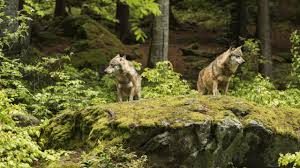The Importance of Wolves in Our Ecosystems

Introduction
Wolves have long captivated the human imagination, symbolizing the wild and untamed nature of our planet. Their role in ecosystems is critical, yet these apex predators face significant threats due to habitat loss, hunting, and environment degradation. Understanding the importance of wolves not only sheds light on biodiversity but also emphasizes the need for their conservation amidst climate change and human encroachment.
The Ecological Significance of Wolves
Wolves are keystone species, meaning their presence in an ecosystem has a disproportionate effect on its structure and health. By regulating the populations of herbivores, such as deer, wolves prevent overgrazing, which allows various plant species to thrive. This, in turn, supports other wildlife, promoting a balanced ecosystem. For instance, the reintroduction of gray wolves to Yellowstone National Park in the mid-1990s led to significant ecological changes, including the recovery of willows and aspens, which benefited beavers, birds, and other fauna.
Current Challenges Facing Wolves
Despite their ecological importance, wolves are under threat. Habitat loss due to urbanization, agricultural expansion, and climate change has severely impacted their territories. Additionally, hunting and trapping continue to pose risks, especially in regions where wolves are seen as a threat to livestock. According to a report from the International Union for Conservation of Nature (IUCN) in 2023, certain wolf populations are classified as endangered or vulnerable, raising alarms among conservationists.
Conservation Efforts
Many organizations are working to protect wolves and their habitats. Initiatives include land preservation, anti-poaching efforts, and community education programs aimed at reducing human-wolf conflict. Collaborative efforts among governments, NGOs, and local communities have led to positive outcomes in some areas. For example, a recent partnership in Canada aims to monitor wolf populations and implement sustainable management practices to ensure their longevity.
Conclusion
The role of wolves in our ecosystems cannot be overstated; they are crucial for maintaining the health of the environments they inhabit. As we move forward, it is vital for governments, conservationists, and the public to work together to protect these magnificent creatures and their habitats. Ignoring their plight could lead to severe ecological consequences and the loss of biodiversity. Through awareness and action, we can ensure that wolves continue to roam our landscapes for generations to come.









